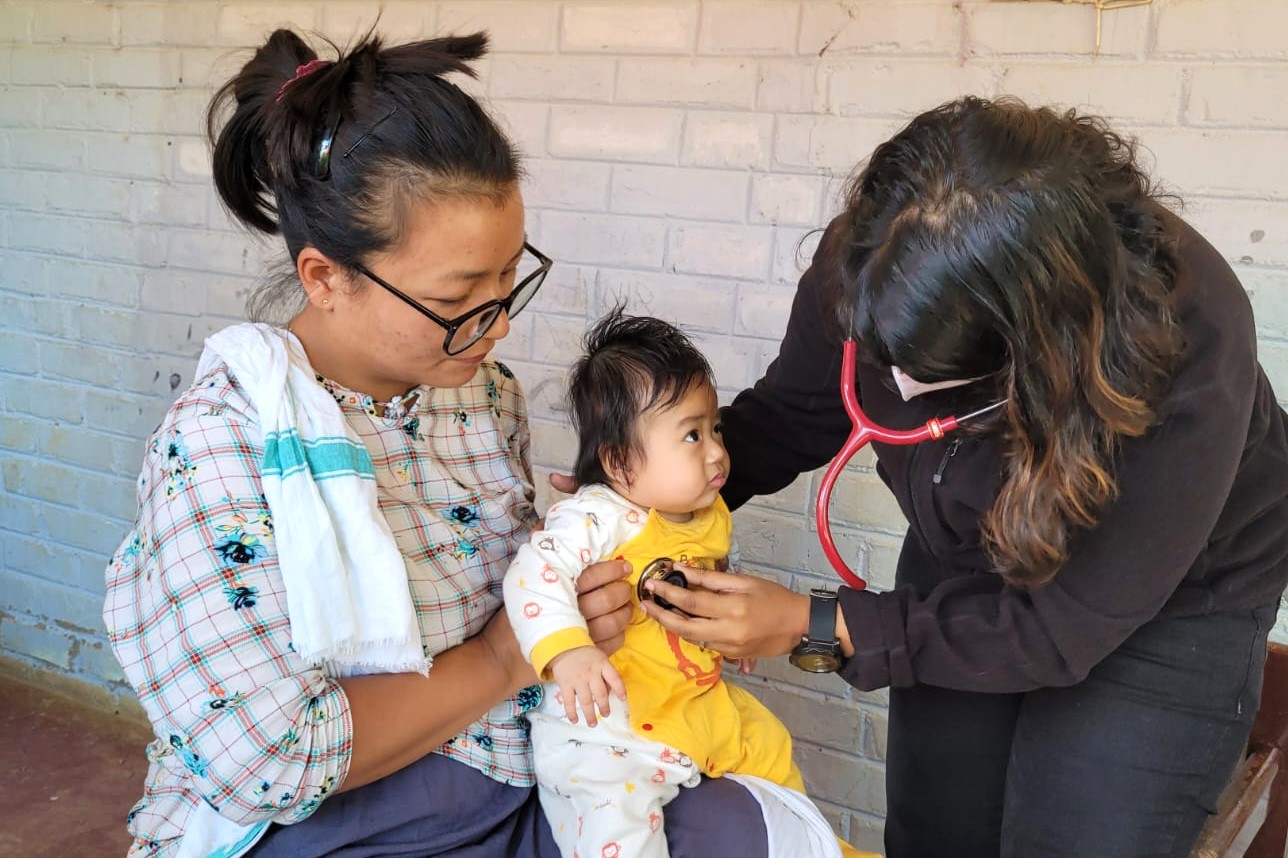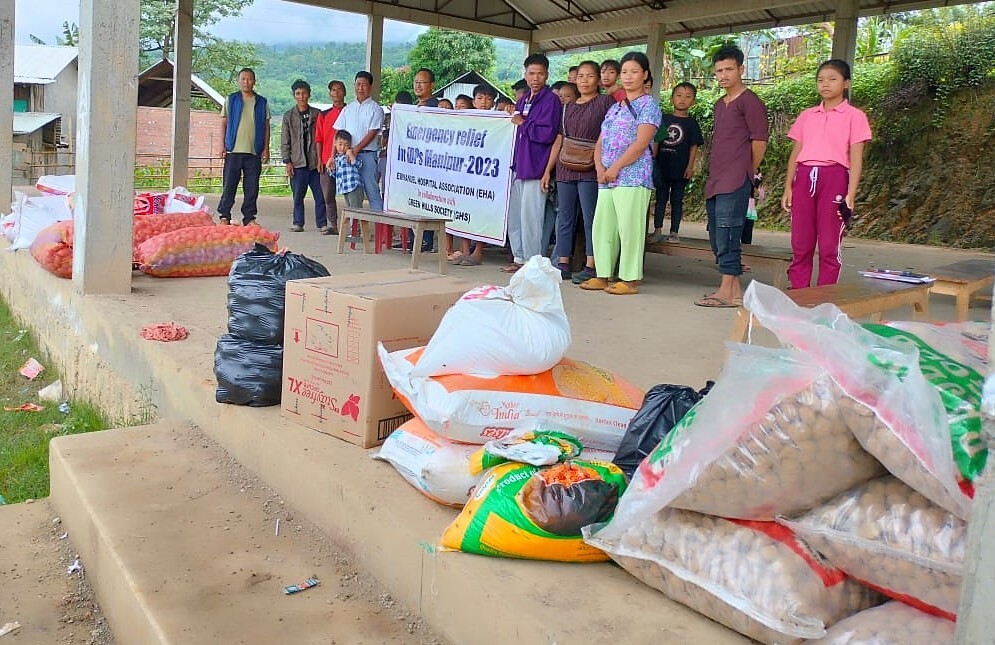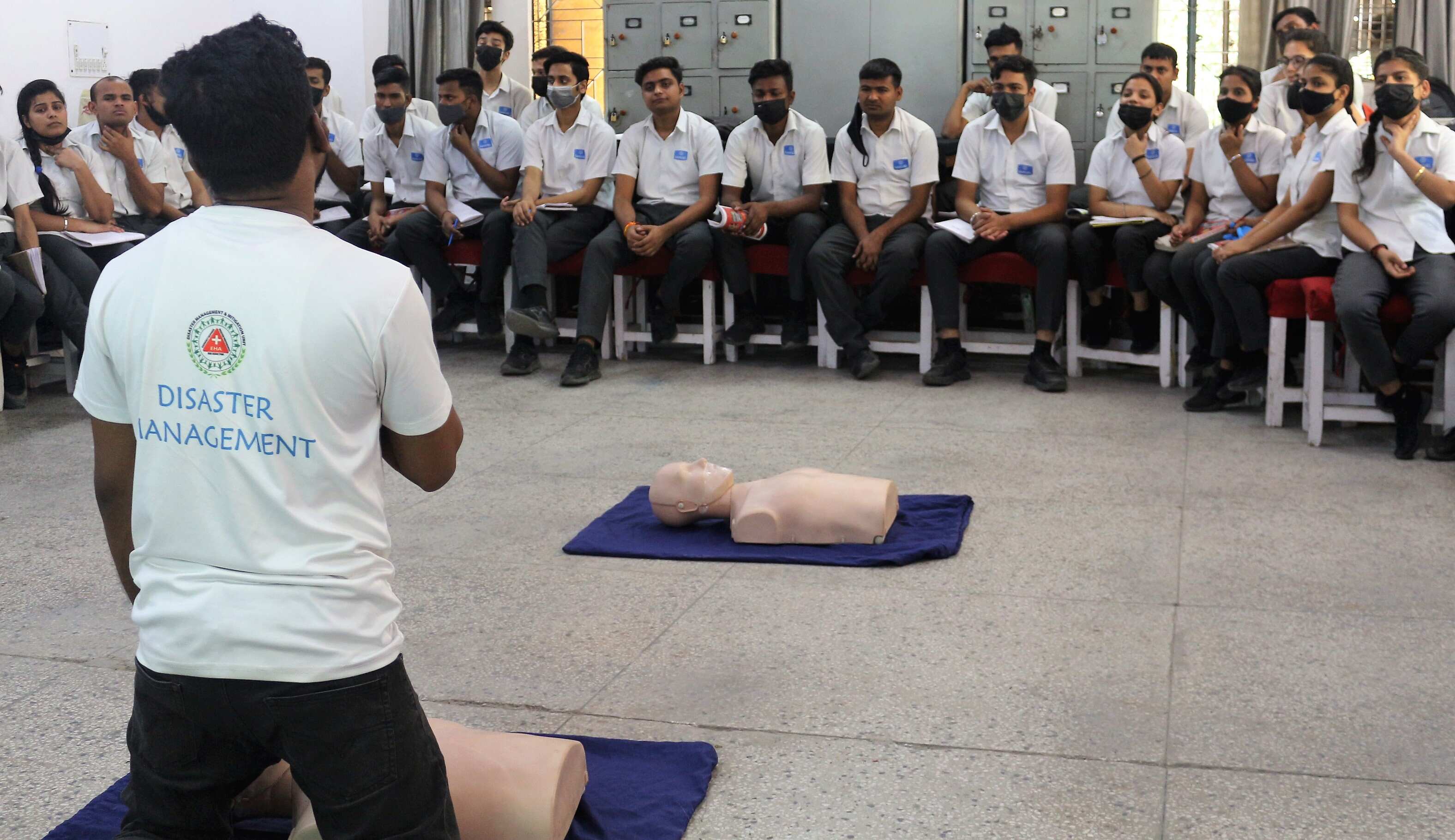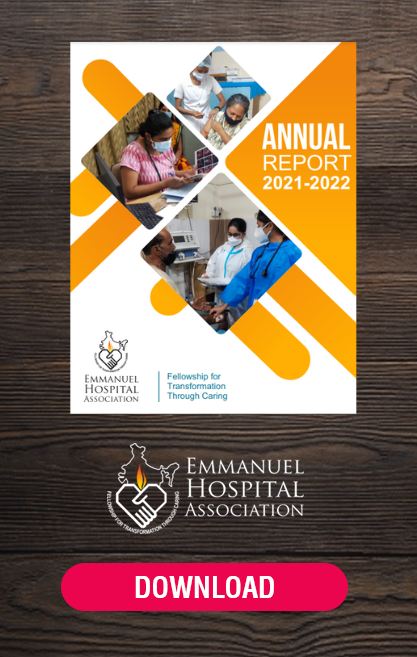Disaster Management & Mitigation Unit (DMMU) operates all over India providing relief to people affected by disasters, building capacity and resilience of local communities through training, preparedness, risks management, livelihood, skills training and other sustainable services. Our goal is toward building safer communities and sustainable growth today and better tomorrow.
EHA began its disaster management initiatives in 1991 and since then it has earned commendable experience in the field for the last three decades. In the beginning our involvement in disaster management was limited to medical relief but with the increasing number of disasters and its impacts in the community EHA officially establish its Disaster Management & Mitigation Unit (DMMU) in 2006 Since then, we had responded to various types of disaster events like earthquake, cyclone, tsunami, flood, fire, avian flu, malaria, ethnic conflict, cloud burst and Covid pandemic etc. One such intervention took EHA's medical team to Kosovo, Albania during 1999, to assist war affected victims with the initiative of United Nations High Commissioner for Refugees (UNHCR) and to the Nepal earthquake in 2015. Today, it operates with three-pronged long-term strategy viz. 1. Emergency Response, 2. Disaster Preparedness through Training & Capacity Building and 3. Disaster Risk Reduction in communities and Institutions (healthcare & educational).
The DEEM (Disaster Education & Emergency Medicine) Training Centre was established in the year 2007 with the primary objective to prepare Community First Responder (CFR) through training. The training courses were developed looking at the need for training both professionals (medical) as well as laymen in the community. First Aid, Emergency Medical Response, Fire safety, Basic Rescue Technique, Evacuation & Mock Drill, Psychosocial Care, Disaster Relief Management, and Hospital & School Disaster Management etc.
Till date 56,000+ people have been trained under DEEMTI in various programs, skills and training.
Disaster Response – EHA's disaster response is guided by its Emergency Response Framework (ERF) and on the basis of basic humanitarian principles, with the main objective to alleviate sufferings of disaster victims. The focus is on the marginalized population in all terms - economic, region, sick, age and disabilities. EHA subscribes to the NGO Code of Conduct by International Federation of Red Cross (IFRC), Sphere Minimum Standard and basic norms of Just and Fair in all its programs, in all possible manners. EHA is committed to achieve Real Time Emergency Response (RTER), using trained Quick Response Team (QRT), smart technology and establishing Disaster Response Network (DRN) at the grass roots community level.
EHA has responded to as many as 57 disaster events approximately benefiting more than 539,000 victims.

Disaster preparedness (DP) - EHA believes that DP must begin at the community level, engaging local volunteers, as they are the natural first responders. It is possible to achieve real-time response by engaging local volunteers and save more lives and alleviate suffering. Institutional preparedness is another important area that cannot be avoided at any cost - Healthcare and educational institutions including large public places like theatre, halls, markets and malls etc. Our Disaster preparedness is holistic and inclusive in nature ensuring “No One Left Behind” by engaging the most vulnerable groups like people with disabilities, pregnant and lactating women, children, aged, widows, sick and the economically marginalized communities.

Disaster Risk Reduction (DRR) - EHA continued its commitment toward the DRR actions subscribing to the current Sendai declaration toward 'The substantial reduction of disaster risk and losses in lives, livelihoods and health and in the economic, physical, social, cultural and environmental assets of persons, businesses, communities and countries’. As a continuous effort to achieve its vision 'toward building safer communities…' EHA continues to seek and explore partnerships across India, South Asia, and other continents utilizing its experiences and expertise especially in the rarely visited areas of Healthcare DRR.
Networking: EHA-DMMU is closely networking with local, national as well as international organizations and is committed to Quality, Accountability, Timeliness and Transparency during emergency relief operations and in all its programs. EHA is one of the founding members of Sphere India and we closely work together with its members, Government and other like-minded organizations.
EHA started its Hospital Disaster Management Workshop with UNICEF and Geo Hazards International (GHI) in 2008. Since then it’s moving unstoppably with having conducted more than 100 workshops and training programs across India and Nepal alongside WHO, Asian Disaster Preparedness Center (ADPC), Government of Bihar and Delhi and several NGOs. EHA has initiated Healthcare Emergency Alliance (HEAL) to establish a network among the South Asian countries for Medical Emergency. The School Safety Program is another area of our work where EHA was involved in training students, teachers and the local community in partnership with SEEDS and Save the Children.



Contact
Shem Raomai
Head- DMMU,
dmmu@eha-health.org



